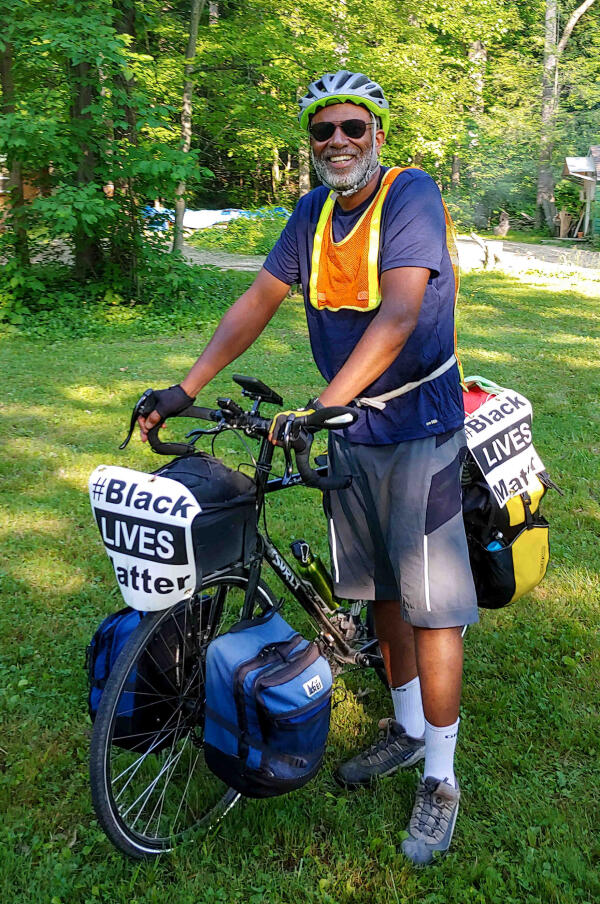Date:
Location:

Join us for a live conversation with Scott V. Edwards, Professor in Harvard’s Department of Organismic and Evolutionary Biology and Curator of Ornithology in Harvard’s Museum of Comparative Zoology. Since June 6, Professor Edwards has been pedaling across the United States to fulfill a long-held wish to traverse the country on a bicycle, and to also raise awareness for #BlackBirdersWeek and Black Lives Matter. In this program, he discusses the motivations for his journey, what he has learned along the way, and the similarities between cycling and doing science.
Register here for this free virtual event. Register by 5:00 pm on July 15. After registering, participants will receive a confirmation e-mail with instructions on how to participate using Zoom.
Download the free Zoom app in advance for the best user experience. If you already have Zoom, you do not need to download it again.
You can send questions for Professor Edwards in advance to hmscprograms@hmsc.harvard.edu.
To learn more about Professor Edwards' research, watch this video.
About the Speaker
Scott Edwards is Professor of Organismic and Evolutionary Biology, Curator of Ornithology, and Alexander Agassiz Professor of Zoology in the Museum of Comparative Zoology at Harvard University. His research focuses on diverse aspects of avian biology, including evolutionary history and biogeography, disease ecology, population genetics and comparative genomics. He has conducted fieldwork in phylogeography in Australia since 1987 and conducted some of the first phylogeographic analyses based on DNA sequencing. His recent work uses comparative genomics in diverse contexts to study macroevolutionary patterns in birds, including the origin of feathers and the evolution of flightlessness.
From 2013-2015 Scott served as Division Director of the Division of Biological Infrastructure at the US National Science Foundation, where he oversaw a staff of 22, an annual research budget of $120M (USD), and managed funding programs focused on undergraduate research, postdoctoral fellowships, natural history collections and field stations, and cyber- and other infrastructure for all areas of biology, from molecular to ecosystem science. He has served as President of three international scientific societies based in the US: the Society for the Study of Evolution, the Society of Systematic Biologists, and the American Genetic Association, each of which publishes a scientific journal and has memberships ranging from 500 – 2500 scientists and students.
He has served on the National Geographic’s Committee for Research and Exploration, the Senior Advisory Boards of the NSF-funded US National Evolutionary Synthesis Center (NESCent) and the National Institute for Mathematical and Biological Synthesis (NIMBioS), and on the Advisory Boards of the National Museum of Natural History at the Smithsonian and the Cornell Lab of Ornithology. He oversees a program funded by the National Science Foundation to increase the diversity of undergraduates in evolutionary biology and biodiversity science. He is a member of the American Academy of Arts and Sciences (2009), a Fellow of the American Association of the Advancement of Science (2009), and a member the National Academy of Sciences (2015).
